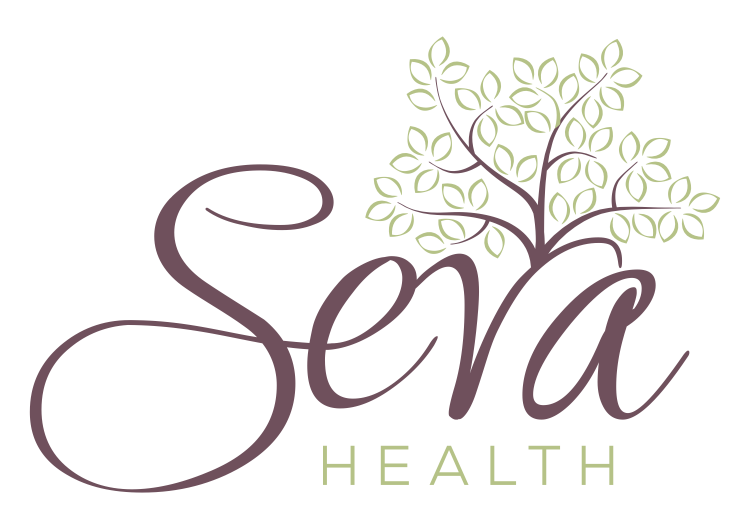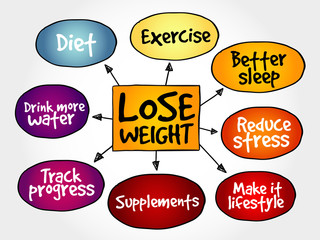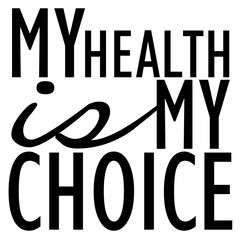01 Aug Hiring A Health Coach? 5 Key Questions to Ask First
The times we are living in are absolutely amazing. There’s no shortage of information and anything we need to know seems right at our fingertips. From heart disease to hanging roof shingles, it seems we’ve reached a point where there’s literally nothing we cannot teach ourselves. If there’s a medical topic that we’re unsure of, no problem! In five seconds or less anything we need to know is available on a screen. Is there anything left for the professional to do?
A Series Of Unfortunate Events
Meet Melinda*, one of the most resourceful women I’ve ever known. Melinda was out of town on a business trip when she called for a video appointment for the seemingly benign symptom of a persistent itchy rash. After a few hours of basic research on the internet, she guessed it was just another bout with the relentless poison ivy in her backyard that she’d had the summer before. The details were pretty simple. Melinda had just turned fifty with the last of her three children heading off to college in the fall. She and her husband were downsizing and readying their four bedroom home to put on the market for sale, which involved tackling the backyard shed and gazebo overgrown with vines and weeds. Despite doing her best to cover up, Melinda guessed that somehow she must have been exposed.
As soon as her flight arrived in Atlanta she went to a nearby Urgent Care center where the diagnosis was quickly made. She was prescribed a steroid pack, a second medication to calm the itch and and a bottle of calamine lotion to soothe the burn. The problem was that the rash, now three weeks later, hadn’t gotten any better. In fact, it was getting worse and starting to spread to her neck, down the opposite arm and across her back. In addition, Melinda had begun having strange muscle aches and felt unusually tired, all of which was interfering with her ability to work. With no time to schedule for an appointment and away again on business, Melinda went to another Urgent Care which only provided another round of steroids and a new cream that wasn’t working.
Questions the Internet Can’t Answer
As a nurse practitioner in private practice, I have the good fortune of having the time to get to know my patients up close and personal. In our initial appointment, Melinda had shared with me her growing frustration with all things related to her health. To begin with, Melinda’s career in corporate finance left little room for her personal interests and goals. Like most of us, she was always on the move and had begun to feel like the stress was catching up to her. She had a great gym membership but really didn’t like the gym environment and could count on one hand the number of times she’d actually scanned her membership card. When we met, she explained that what she was really looking for was someone who could help her get ‘a new lease on life.’
What I also knew about Melinda was that she harbored significant guilt about her one main health condition of high cholesterol. Despite her best effort at changing her diet, she still needed medication. Lab work with her previous doctor and a careful family history had confirmed the possibility that her condition could very well be hereditary, given that both her parents, her maternal grandparents and three of her four siblings had cholesterol problems and two had full blown heart disease. She understood the benefit of taking a medication to keep her cholesterol under good control but coupled with her setbacks with exercise and constant stress, medication felt like another sign of failure.
Getting Down To Business
A careful assessment during our videoconference made it clear that the rash was not poison ivy. Through specific questioning about her symptoms, the onset, timing and duration of the rash and more key questions related to her associated muscle aches, Melinda disclosed that she’d been doing research on natural approaches to health and had learned about a program for ‘cleansing’ and ‘detoxing’ as a means of getting her cholesterol down. Though she was initially a bit skeptical, it was a conversation with her colleague Joyce at a regional meeting that sealed the deal. Joyce had come to a regional meeting celebrating the loss of 15 pounds and a full dress size which only made Melinda feel worse.
Joyce put her in touch with a health coach who specialized in weight counseling. The before and after pictures were amazing and she credited a list of supplements that promised everything from longer hair to losing weight. By cleansing the liver and kidneys, the coach advised, Melinda would feel like she’d gained a new lease on life. Feeling so discouraged, Melinda was willing to give it a try and invest in the services and the supplements that her new health coach had advised.
When Melinda arrived back in town she had immediate homework to do. After a trip to the lab for bloodwork and a careful diary that I asked her to complete, we found our answer. Melinda had a serious allergy to several of the components in the powder supplements she’d been taking. A cross check with her cholesterol medication revealed the possibility that the combination could be the cause of her muscle aches and cause dangerous side effects in a short amount of time.
Something to Think About
The best intentions don’t always yield the best results. While medical information may be plentiful and readily available in the vast space of the internet, the fact remains that medicine is still a science that requires a great deal of specialized knowledge, critical thinking, clinical application and interpretation. Like any professional consultant, those who practice medicine draw on specific knowledge and training to diagnose, advise, treat and evaluate complex health conditions. While Melinda’s new health coach may have had success in her own personal weight loss journey and good intentions for sharing those successes with her clients, the truth is that Melinda needed more than good intentions, she needed the science.
Health coaching by contrast is not medical practice nor medical consulting but an exciting field nonetheless for individuals who want to empower people to live healthier lives. The primary focus of a health coach is to help individuals create action-oriented strategies to achieve specific goals that relate to a healthier lifestyle. Emphasis is placed on behavioral change, personal accountability and follow through. The relationship between a health coach and a client is supportive in nature and often begins by helping individuals identify their own personal values and goals. Through supportive dialogue and guided self-inquiry health coaching can help individuals:
- strengthen health literacy by identifying gaps in knowledge and skills that may be needed to gain control of a health condition
- identify self-limiting thoughts and beliefs that contribute to feeling ‘stuck’ ‘in a rut’ or ‘like a failure’
- gain clarity about obstacles to change and create reasonable strategies for action
- develop and enrich personalized resources that strengthen inner wisdom
- feel in control by becoming an active rather than passive participant in their health care
Individuals may begin to ask important questions such as ‘Why have I stopped taking my medication?’ or ‘Why does having this condition make me feel so afraid?’ In Melinda’s case, ‘What factors in my current condition makes me feel like a failure?’
Health coaching should always supportive in nature, driven by the individual’s needs, readiness and self-identified priorities at any given time. For a diabetic, it may be learning how to improve time management for healthier meal planning. For an individual struggling to lose weight it may be learning how to incorporate an exercise regimen into a hectic, time-limited schedule. In essence, health coaching is the bridge between the recommendations made by a medical professional and the individual’s ability to implement those recommendations into their life for lasting change. Just as you wouldn’t call a plumber to change a flat tire, a health coach should not be construed as a medical professional unless they are indeed a licensed, medical professional offering coaching as an extension of their practice.
Supplements can be helpful but they can also be dangerous and potentially toxic. Like Joyce and Melinda, no two people are the same. What is tolerable for one person can be intolerable and downright dangerous for another. With proper guidance, many nutritional deficiencies can be corrected through a healthy, well balanced plate. Commercial buzz words of ‘detoxing’ and ‘cleansing’ should also be carefully investigated. As quite powerful filtration systems, the liver and kidneys perform vital functions every minute of the day and rarely need outside help. Diseases and deficiencies do occur but wherever there is suspicion of a problem, the advice of a medical professional should always be the first step.
5 Important Questions to Ask a Health Coach
Education and empowerment are the heart and soul of medicine and the cornerstones of good clinical care. Thankfully for Melinda, health coaching is an additional specialized service that I offer as as a nurse practitioner after many years of experience witnessing the impact that beliefs and behaviors often have on health. If you are considering the addition of a health coach, these are five key questions to ask before hiring someone for your care:
1. What is your educational preparation and training?
Only you can decide the level of education that you are comfortable with in a health coach. There is a broad range of health coaches and there is no mandatory licensure or training requirement an individual must achieve in order to brand themself as a health coach. Some are licensed medical professionals and therapists with additional training and coaching certifications and some who have no medical license or certification at all. What is most important is that the individual be aware of their own ‘scope of practice’ and the legal and ethical limitations to giving medical advice or making medical recommendations for health related matters.
2. Do you have a specialty focus?
Coaches are not one-size-fits-all and many chose to focus on one particular area such as weight loss, nutrition, exercise and fitness, chronic  disease management, meditation and so on. Some coaches are holistic in their approach and are able to meet the complex mental, physical and spiritual factors that affect our health by incorporating mind-body practices like yoga, QiGong, T’ai Chi and meditation. Ample research has shown clinical benefits of these practices in helping to achieve greater focus, reduce anxiety, lower blood pressure and even lose weight. Ask the individual what their primary interests are and how they are able to bridge the gaps to provide holistic care.
disease management, meditation and so on. Some coaches are holistic in their approach and are able to meet the complex mental, physical and spiritual factors that affect our health by incorporating mind-body practices like yoga, QiGong, T’ai Chi and meditation. Ample research has shown clinical benefits of these practices in helping to achieve greater focus, reduce anxiety, lower blood pressure and even lose weight. Ask the individual what their primary interests are and how they are able to bridge the gaps to provide holistic care.
3. What is your method and style of coaching?
At the end of the day, health coaching is about empowering individuals to identify personal challenges, set goals, become accountable, and work toward lasting foundational change. But coaching can also open the doors to many real life fears, doubts and personal insecurities that may or may not have been explored. Coaching is not psychological therapy. A good and confident coach should be able to describe their own professional methods for exploring sensitive issues while also understanding when psychotherapy or counseling may be needed to facilitate changes in a safe and healthy way.
4. How can coaching fit my needs?
Honesty is always the best policy and no matter how impressive the person’s website or resume may be, the bottom line is that health coaching can only be beneficial when both parties are forthright about their needs, expectations and capabilities. Fully describe what you’re looking to gain through health coaching. Be honest about the challenges you’ve faced, your successes and your setbacks. Openly ask about fees so that you’re prepared to make the investment for what will likely take multiple visits and time. Be honest about the time you are able to commit and ask about technologies such as videoconferencing that may help simplify the scheduling and make follow up more accessible and convenient for you.
5. What is your referral process for issues that require medical care?
Like the case of Melinda’s rash and muscle aches, it is very important to remember ‘scope of practice’ and that a general health coach is not medically trained or licensed to diagnose and treat medical concerns. Having experience working with individuals who have different diseases does not infer qualification to advise, recommend or treat them medically. If you don’t have a health care provider, consider finding one before signing on with a health coach. Having a health care provider in place will allow the coach to seamlessly refer you when a workup or medical exam and evaluation is needed. If the health coach keeps records (which they should!) it will allow for a team based approach and more comprehensive care should you decide to consent.
There’s an old saying that ‘many hands make the load light.’ Our modern lives are complex and a team based approach allows us to achieve more well rounded health care than ever before. But a great team is only great when each member on the team plays the right position, with you, of course, at the lead.
For more insight into how health coaching works and how it can benefit you, have a look at Duke University Integrative Health Center which provides exceptional training for medical professionals and others interested in helping individuals lead healthier lives.
https://www.youtube.com/watch?v=YWnG30WD2XE
* Name and key identifiers changed to protect identity.
(Pill Image Photo Credit, Wisegeek).




Ridley Fitzgerald
Posted at 02:20h, 06 FebruaryThanks for the tips for hiring a good health coach. I’ve heard that they can help with a ton of things, so I’ve been looking into it. I like how you said to ask about the style of coaching. I’d want someone who friendly and confident.
rachel frampton
Posted at 21:34h, 22 JanuaryMy sister is currently a nurse intern in the hospital near our house, and she’s been telling me how hard it is for her to communicate well with her patients. That’s why I guess hiring a health coach would be helpful for my sister. Well, what you’ve stated is correct, making the patients understand their need for medication is necessary and as a nurse this is one of the biggest responsibilities that they will be facing.